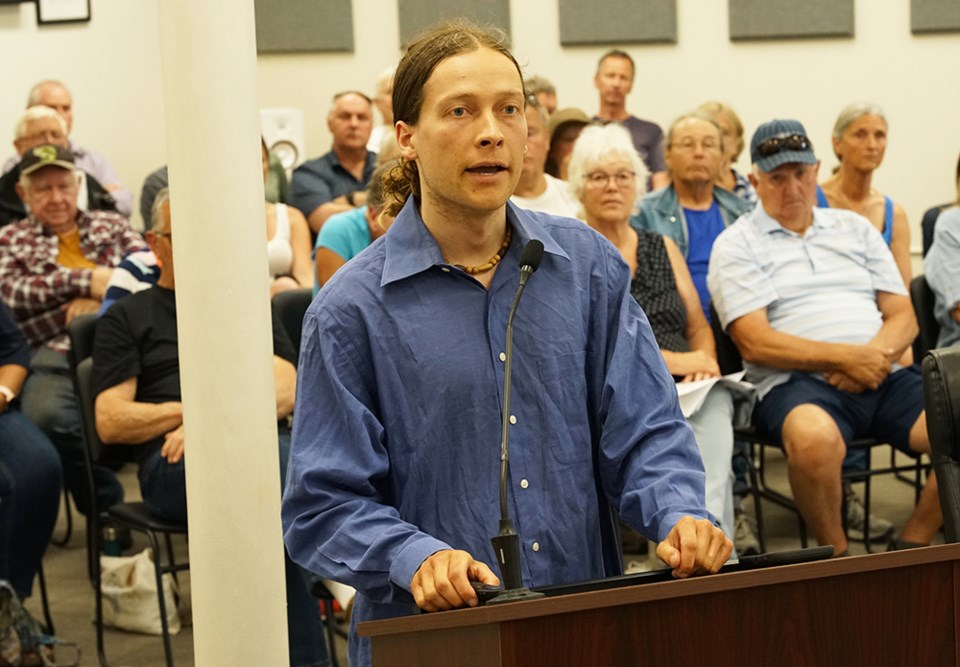City of Powell River council will consider a resolution affirming its commitment to the endorsement of the Fossil Fuel Non-Proliferation Treaty.
Appearing as a delegation at the July 5 committee of the whole meeting, Calvin Beauchesne asked the city to endorse the treaty. He said his background includes having a bachelor’s degree in environmental studies and a masters in sustainability studies.
Beauchesne said last year, the intergovernmental panel on climate change (IPCC) released its sixth assessment report on the impacts of climate change. He added that United Nations secretary-general Antonio Guterres said the latest IPCC report should sound a death knell for coal, oil and gas, and investing in fossil fuels is “moral and economic madness.”
According to Beauchesne, fossil fuel expansion is incompatible with a 1.5-degree Celsius target. He said current warming trends are on track for 2.4 to 3.5 degrees Celsius of warming by 2100, and added that the temperature has climbed to 1.3 degrees Celsius above pre-industrial levels.
“We’re already seeing record-breaking wildfires, heat waves and flooding from climate change,” said Beauchesne. “We often think of climate change and fossil fuels as an environmental problem, but in fact, they are a public health crisis as well.”
Beauchesne said the Fossil Fuel Non-Proliferation Treaty is a global campaign calling for the phase-out of fossil fuels and a timely transition to renewable energy to address the global climate crisis. He said it is inspired by historical treaties such as the Nuclear Non-Proliferation of Weapons Treaty.
There are three pillars to the treaty, according to Beauchesne. They include stopping all new oil, gas and coal extraction; equitably phasing out existing fossil fuel projects and stockpiles in line with the 1.5-degree Celsius target; and retraining and repurposing fuel workers to work in the green energy sector.
Beauchesne said cities have a role to play by helping build pressure on national governments to phase out fossil fuels and support a non-proliferation treaty. He said cities will be severely impacted from climate change, and here on the Sunshine Coast, populations are vulnerable to rising sea levels.
Urging action
Endorsing the Fossil Fuel Non-Proliferation Treaty is one way to act on the city’s declaration of a climate emergency in 2019, added Beauchesne. He urged councillors to pass a motion endorsing the treaty, as well as to send letters to MLA Nicholas Simons, the premier and prime minister, asking for bans on new fossil fuel projects, phasing out existing projects, and legislation to help workers transition to jobs in the renewable energy sector.
The final recommendation was to continue to work toward phasing out fossil fuels in the city.
Councillor CaroleAnn Leishman said it is important to get these types of things from local governments to senior levels of government. She recommended that the matter go to city council.
Councillor George Doubt said he looks forward to the matter coming up at council and hopes for more information than has been presented, specially, local information.
“One thing you are asking council to do is pledge to meet its proportionate greenhouse gas reductions under the Paris Climate Agreement,” said Doubt. “It’s important that we understand exactly what we are pledging to do before we pledge to do it.”
Leishman, as chair of the recently concluded climate change mitigation and adaptation committee, offered to work with staff to make sure what comes forward to council is relevant and appropriate.
Beauchesne supplied an extensive resolution for council’s consideration and chief administrative officer Russell Brewer said all of it, except for the section that Doubt pointed out, could go to council for consideration. Brewer said the proportionate greenhouse gas reductions might be hard to calculate in two weeks, before the resolution is brought before council.
The committee gave unanimous consent to send the request to council in two weeks with input from staff. Leishman said she would also work on the resolution to be brought before council.



